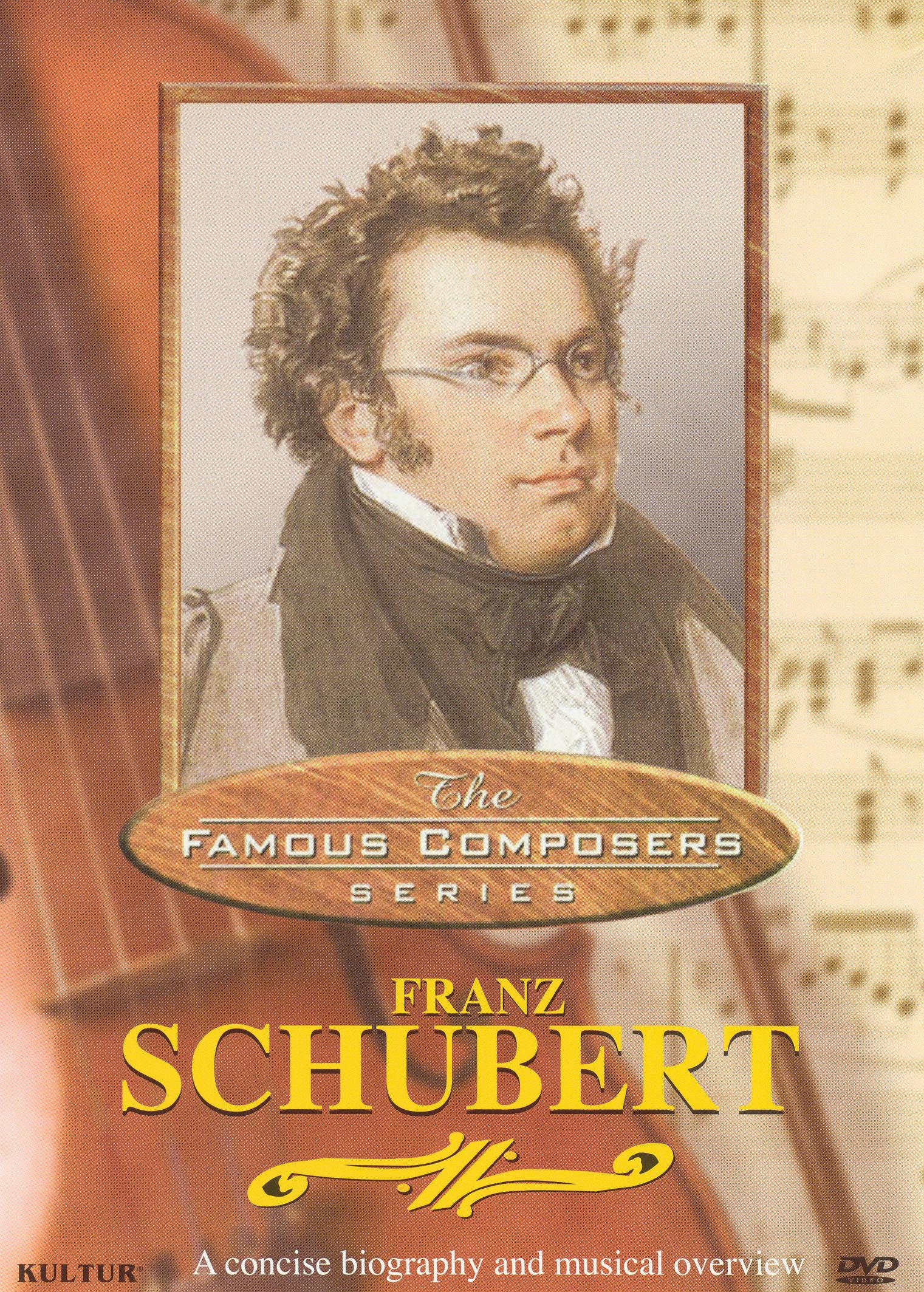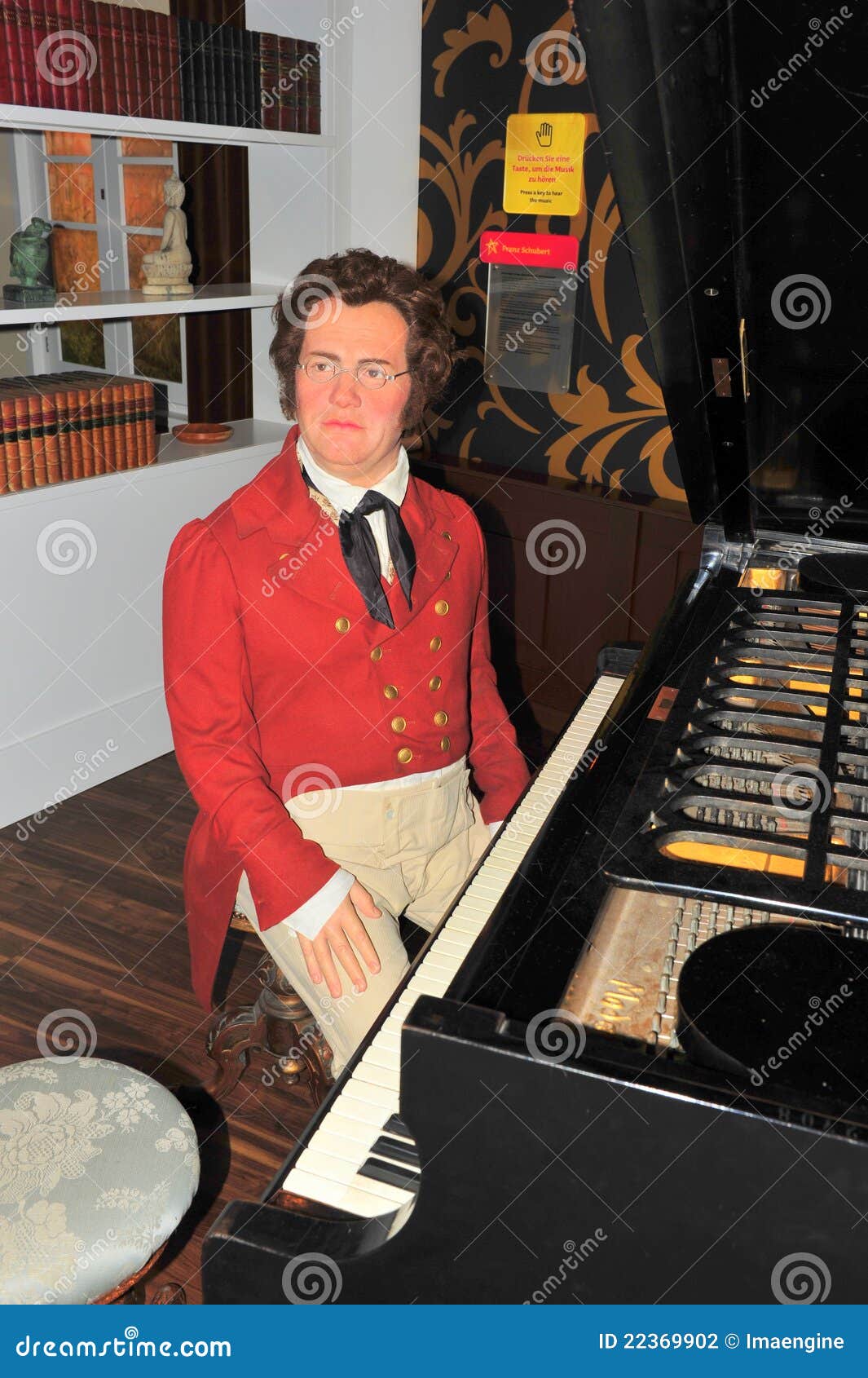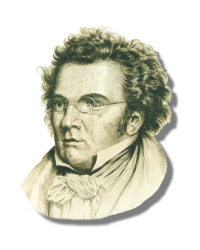

It was next to Beethoven, whom he had admired all his life, that Schubert was buried by his own request, in the village cemetery of Währing. Franz Schubert, an early romantic Austrian composer, is best known for his lieder (German art songs for voice and piano) during the nineteenth century. During a career lasting less than 20 years, Franz Schubert (1797-1828) produced a torrent of work, including operas and symphonies 600 songs overtures and. 131 his friend, violinist Karl Holz, who was present at the gathering, five days before Schubert’s death, commented: “The King of Harmony has sent the King of Song a friendly bidding to the crossing”. The last musical work he had wished to hear was Beethoven’s String Quartet No. Today, Schubert is ranked among the greatest composers of the late Classical era and early Romantic era and is one of the most frequently performed composers of the early nineteenth century. Felix Mendelssohn, Robert Schumann, Franz Liszt, Johannes Brahms and other 19th-century composers discovered and championed his works.

More telling is the testimony of Fyodor Druzhinin, violist of the Beethoven Quartet at a much later period in the composers. Alongside his Tenth Symphony, Shostakovich took special pride in the Third Quartet, in a way that most artists do, who have to think their latest piece is their best. Appreciation of his music while he was alive was limited to a relatively small circle of admirers in Vienna, but interest in his work increased significantly in the decades following his death. Peter Quantrill listens back to its history on record. His output consists of over six hundred secular vocal works (mainly Lieder), seven complete symphonies, sacred music, operas, incidental music and a large body of chamber and piano music. Grave: 31A-28.įranz Peter Schubert was an Austrian composer. Schubert died at 31 but was extremely prolific during his lifetime. In the 1880’s, the remains of both composers were moved to the newly opened Central cemetery, Vienna, Austria. Buried: After his death, Schubert was buried next to Beethoven in what is today called “Schubert Park”, just down Währingerstrasse from the Volksoper, Vienna, Austria.His gift for melody has, quite probably, never been equalled. Franz Schubert (17971828) was an Austrian romantic composer and although he died at the age of 31, he was a prolific composer, having written some 600 lieder and nine symphonies. The ideas came tumbling out like water from a spring. Born: 31-01-1797 Himmelpfortgrund (now a part of Alsergrund), Vienna, Austria. Franz Schubert (born Janudied November 19, 1828) was not the first of the Romantics but he was, as one writer put it, the first lyric poet of music.At his death, aged 31, he was mourned not only for his achievement but for "still fairer hopes.

1827-8 saw not only the production of "Winterreise" and two piano trios but a marked increase in press coverage of his music and he was elected to the Vienna Gesellschaft der Musikfreunde. He wrote mature piano sonatas, notably the one in A minor, some magnificent songs and his last, highly characteristic String Quartet, in G. With his reputation in Vienna steadily growing, Schubert now entered a more assured phase. In 1824 he turned to instrumental forms, producing the A minor and D minor ("Death and the Maiden") string quartets and the lyrically expansive Octet for wind and strings around this time he at least sketched the "Great" C major Symphony. Strained friendships, pressing financial need and serious illness - Schubert almost certainly contracted syphilis in late 1822 - made this a dark period, which however encompassed some remarkable creative work: the epic "Wanderer" Fantasy for piano, the passionate, two-movement Eighth Symphony ("Unfinished"), the exquisite "Schöne Mí¼llerin" song cycle, "Die Verschworenen" and the opera "Fierabras".
#SCHUBERT COMPOSER FULL#
Though full of outstanding music, it was rejected. Schubert's admirers issued 20 of his songs by private subscription, and he and Schober collaborated on "Alfonso und Estrella". In 1820-21 aristocratic patronage, further introductions and new friendships augured well. This output continued through 1815 with "Gretchen am Spinnrade" and "Erlkänig" among numerous songs, two more symphonies, three masses and four stage works.

By 1814 he had produced piano pieces, settings of Schiller and Metastasio, string quartets, his first symphony and a three-act opera. The son of a schoolmaster, Franz Schubert showed an extraordinary childhood aptitude for music, studying the piano, violin, organ, singing and harmony and composition with Antonio Salieri.


 0 kommentar(er)
0 kommentar(er)
